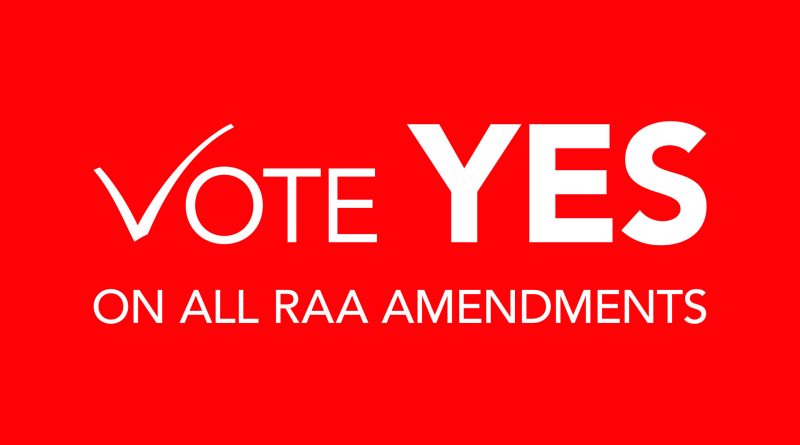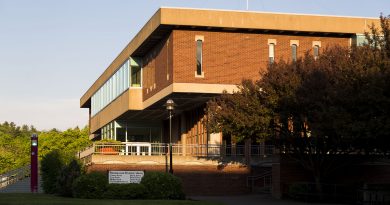RPI RAA Annual Meeting
Dear RPI Alumni,
We urge you to vote “YES” in favor of our proposed amendments to the RAA Bylaws.
All RPI alumni should have received an email from raahelp@mg.electionservicescorp.com containing a link for proxy voting. If you have not, then you should send an email to raa@rpi.edu and request assistance.
Your support is critical to implement a series of bylaw amendments put forward by Renew Rensselaer. If passed, these amendments will bring about competitive elections for trustees and officers in future elections, thereby making the RAA Board more responsive to the will of rank-and-file alumni. We requested five minutes during the Annual Meeting to explain our proposals, but never received a reply. Therefore, we present for your review our rationale of the proposed amendments:
- Restoring the threshold to 100 members for calling a special meeting simply takes us back to that which was in place for many decades prior to the RAA’s January 2019 amendment setting it at 10% of all alumni (more than 10,000 members). The law does not require the 10% rule as the minimum threshold, but rather states in no case can the threshold be more than 10% of the members; and it permits a lower threshold if the bylaws make such a written provision. We believe that the threshold for calling a special meeting should be a practical and attainable number, rather than an excessively large and unknowable number, in order to ensure that the board remains accountable to its members. Defining the number as 100 makes sense because that is the minimum quorum permitted to hold a meeting under the applicable New York State law. By way of an example, Colgate University Alumni Corporation (an independently chartered alumni association in New York State) defines this threshold as 100 members.
- Restoring the election of “trustee officers” to the membership is simply a return to the rules that existed within the RAA for many decades, prior to the changes made unilaterally by the board in June 2020 without the approval of the members. Moreover, because the RAA Charter requires all trustees be elected by the membership, and a “trustee officer” is both a voting trustee and officer, we believe that removing the rights of the members to elect the trustee officers is a violation of the charter provisions; and our legal counsel affirmed this reading of the bylaws and charter language. The incumbent RAA board is depriving the membership of its right to choose who leads the association. Candidates for trustee officer should have no fear of being held accountable to the members, or of reporting to them regularly about the affairs of the association. To suggest otherwise is enabling a culture of elitism and secrecy.
- To provide a genuinely free and open election process, we proposed a nomination rule that would allow candidates to be placed on the ballot directly via petition, regardless of the opinion of the nominating committee. This would enable truly competitive elections and give members a real choice of who is elected to the leadership of the association. In recent years, the diversity of viewpoints on the board has been stifled by a self-selecting process in which a small handful of incumbent board members determine the list of candidates who will appear on the ballot. This deprives the membership of real choice, since they can only “choose” from among the pre-selected candidates. Moreover, until this year, there was no choice except “all or nothing” because the entire slate of candidates listed only one person per position. Even now, we only have the illusion of choice because the nominating committee prevents ballot access for outsiders who don’t meet their approval. In order for the association to operate in a manner that is truly representative of all members, it must have free and open elections, instead of members being held captive to choices that are pre-selected by the incumbent board.
- We propose to limit the board’s right to make unilateral bylaw changes without the membership’s consent. In recent years we have seen the board make drastic changes to long-standing bylaws in its attempts to avoid being held accountable to the members. New York State Not-for-Profit Corporation Law provides that bylaws may be amended both the board and the members, but it also provides a way that the members can restrain the board from making bylaw changes as we are seeking here. The law also speaks to a distinction between “adopting,” “amending,” and “repealing” bylaws. When the RAA Charter empowered the board to “adopt” bylaws in 1964, that was in reference only to the original set of bylaws. It did not grant them the exclusive, perpetual right to “amend” and “repeal” bylaws. The original bylaws were in place for decades, and therefore this provision of the charter for the board to adopt bylaws has been satisfied. It is clear that the members are unhappy with recent bylaw changes made by the board. At the last annual meeting held in September 2019, members overwhelmingly voted (295 “no” to 72 “yes”) against endorsement of the board actions (which included several bylaw changes that deprived the members of long-standing rights). Yet the board considered this vote as merely an “opinion survey” and refused to accede to the expressed will of the members. This situation is what led us to the present set of bylaw proposals, to legally restore the rights of the members and to prevent the board from taking those rights away again.
RPI is only as strong as the support and involvement of its alumni. Renew Rensselaer believes alumni support for the Institute will improve should better governance practices be implemented. By voting to approve the proposed amendments to the RAA bylaws, you can join fellow alumni in taking a major step toward increasing the voice of alumni and improving governance within the RAA.
Please vote “YES” to approve all of the RAA bylaw amendments!
Sincerely,
Bill Criss ’68, ’69G
Renew Rensselaer


